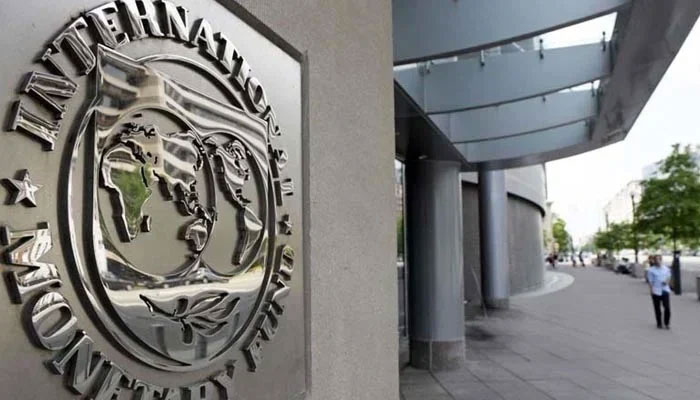IMF team likely to arrive in middle of month to finalise next bailout
IMF mission is likely to visit Pakistan in mid-May 2024 to finalise salient features of upcoming bailout package under the $6-$8 billion Extended Fund Facility (EFF) programme
ISLAMABAD: The IMF mission is likely to visit Pakistan in mid-May 2024 to finalise the salient features of the upcoming bailout package under the $6-$8 billion Extended Fund Facility (EFF) programme.
The IMF team will stay in Islamabad for about two weeks to finalise the macroeconomic and fiscal framework for the next three to four years programme. The government is expected to present the next budget 2024-25 around June 6 or 7, 2024 before parliament with the possibility of taking stringent measures aiming at achieving fiscal stabilisation.
The pension reforms might become one of the major demands of the IMF programme from the next financial year under which the provision of pension might not become feasible. There is another proposal under consideration to bring pensions under the tax net.
The FBR is considering bringing monthly pension of Rs100,000 under the tax net. There is another proposal to slap a flat rate of 10 percent on the taxable ceiling amounts of pensioners.
The size of the next EFF programme will be finalised during the upcoming parleys between the two sides.
Pakistan is also expected to request the IMF for augmentation through climate finance as being done by Bangladesh to jack up its size of the IMF programme. Egypt’s programme size was also increased to $8 billion.
In the upcoming parleys, the IMF is all set to propose heavy taxation and massive curtailment of expenditure to achieve fiscal consolidation. The primary surplus has remained positive but the overall fiscal balance has been showing a worsening situation whereby the net revenue receipts were unable to meet debt servicing requirements, which proved to be the largest ticket item on the expenditure front.
-
 ‘Narcissist’ Andrew Still Feels ‘invincible’ After Exile
‘Narcissist’ Andrew Still Feels ‘invincible’ After Exile -
 Shamed Andrew ‘mental State’ Under Scrutiny Amid Difficult Time
Shamed Andrew ‘mental State’ Under Scrutiny Amid Difficult Time -
 Bad Bunny's Super Bowl Halftime Show: What Time Will He Perform Tonight?
Bad Bunny's Super Bowl Halftime Show: What Time Will He Perform Tonight? -
 Where Is Super Bowl 2026 Taking Place? Everything To Know About The NFL Showdown
Where Is Super Bowl 2026 Taking Place? Everything To Know About The NFL Showdown -
 Chris Pratt Explains Why He And Katherine Schwarzenegger Did Premarital Counseling
Chris Pratt Explains Why He And Katherine Schwarzenegger Did Premarital Counseling -
 Drake 'turns Down' Chance To Hit Back At Kendrick Lamar At Super Bowl
Drake 'turns Down' Chance To Hit Back At Kendrick Lamar At Super Bowl -
 Sarah Ferguson Had A ‘psychosexual Network’ With Jeffrey Epstein
Sarah Ferguson Had A ‘psychosexual Network’ With Jeffrey Epstein -
 Miranda Kerr Shares The One Wellness Practice She Does With Her Kids
Miranda Kerr Shares The One Wellness Practice She Does With Her Kids -
 Czech Republic Supports Social Media Ban For Under-15
Czech Republic Supports Social Media Ban For Under-15 -
 Khloe Kardashian Shares How She And Her Sisters Handle Money Between Themselves
Khloe Kardashian Shares How She And Her Sisters Handle Money Between Themselves -
 Prince William Ready To End 'shielding' Of ‘disgraced’ Andrew Amid Epstein Scandal
Prince William Ready To End 'shielding' Of ‘disgraced’ Andrew Amid Epstein Scandal -
 Chris Hemsworth Hailed By Halle Berry For Sweet Gesture
Chris Hemsworth Hailed By Halle Berry For Sweet Gesture -
 Blac Chyna Reveals Her New Approach To Love, Healing After Recent Heartbreak
Blac Chyna Reveals Her New Approach To Love, Healing After Recent Heartbreak -
 Royal Family's Approach To Deal With Andrew Finally Revealed
Royal Family's Approach To Deal With Andrew Finally Revealed -
 Super Bowl Weekend Deals Blow To 'Melania' Documentary's Box Office
Super Bowl Weekend Deals Blow To 'Melania' Documentary's Box Office -
 Meghan Markle Shares Glitzy Clips From Fifteen Percent Pledge Gala
Meghan Markle Shares Glitzy Clips From Fifteen Percent Pledge Gala




